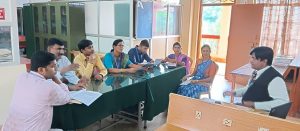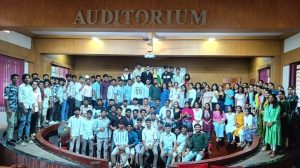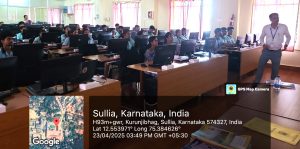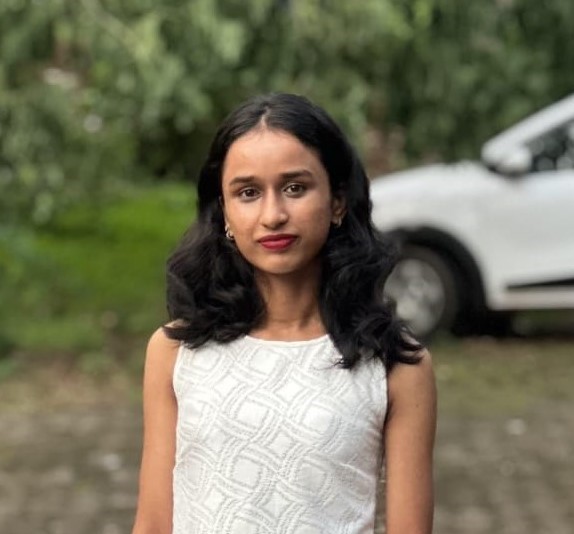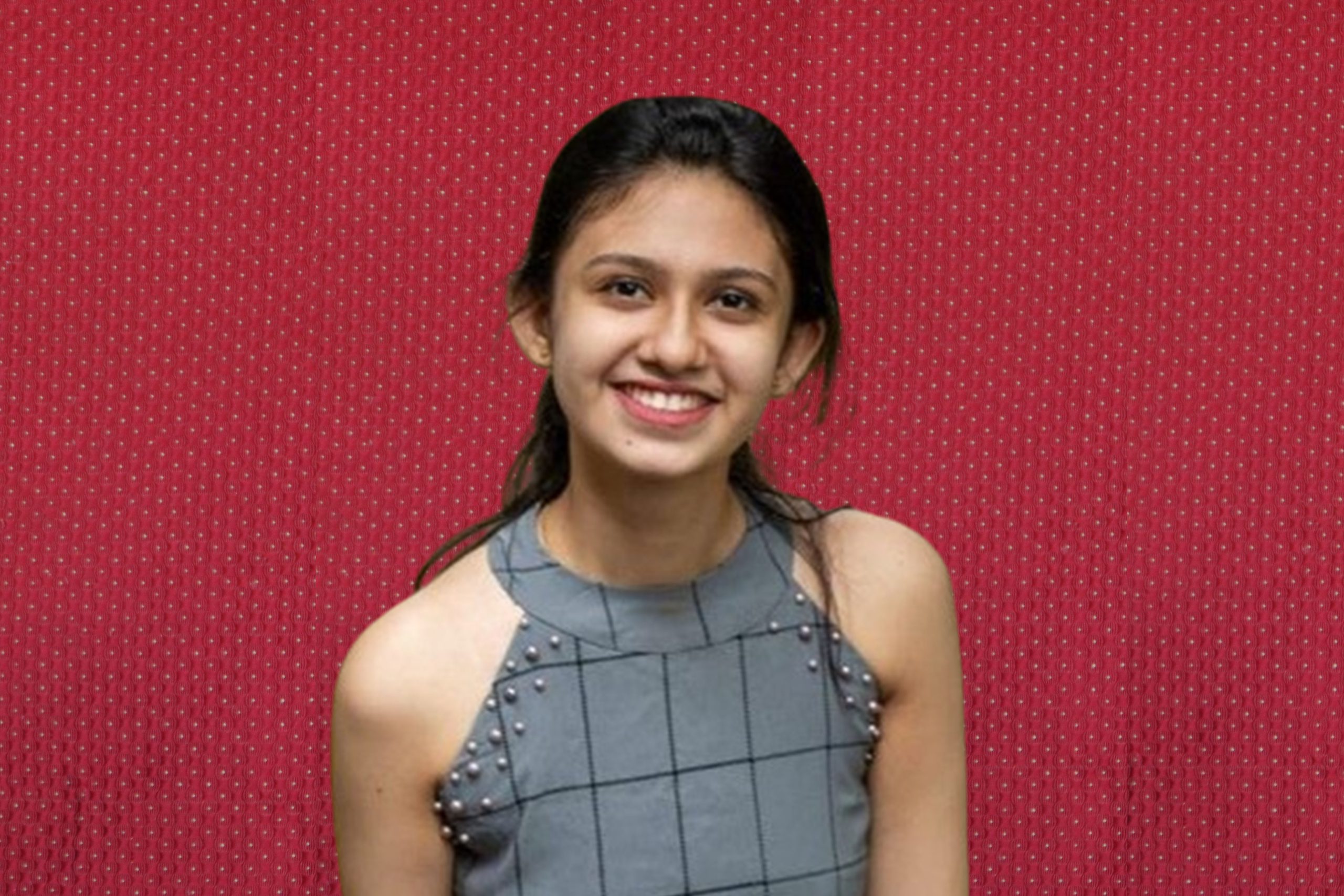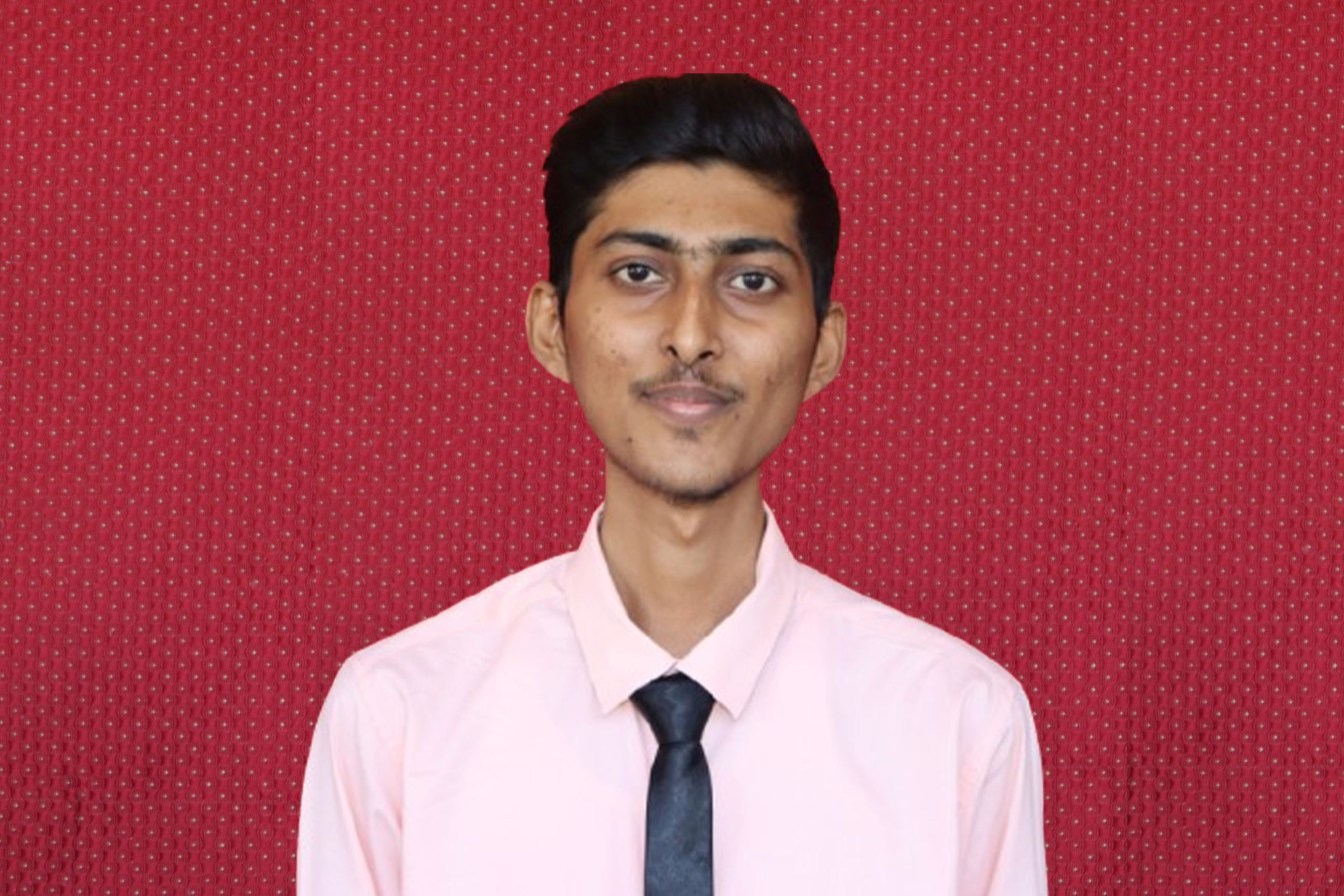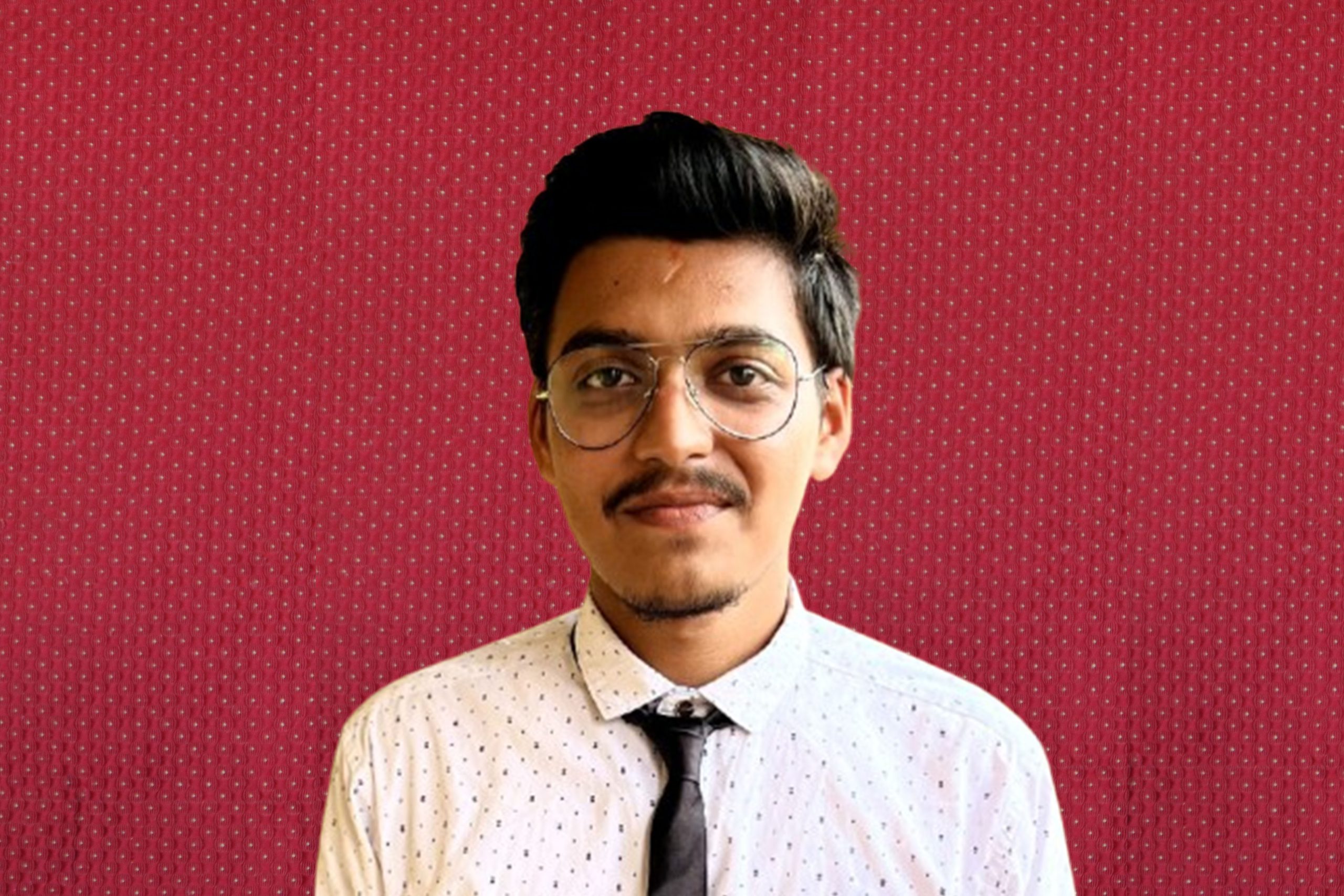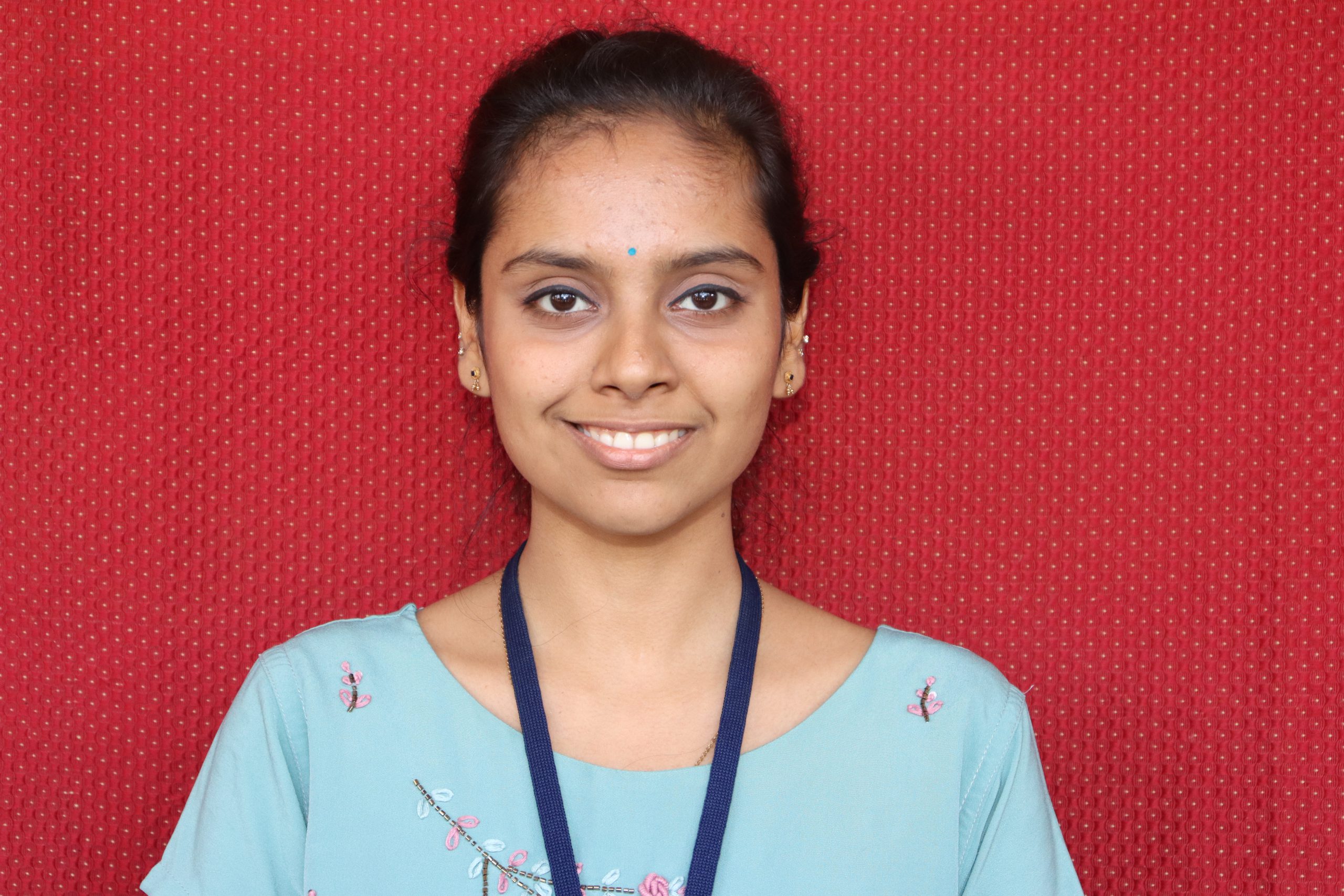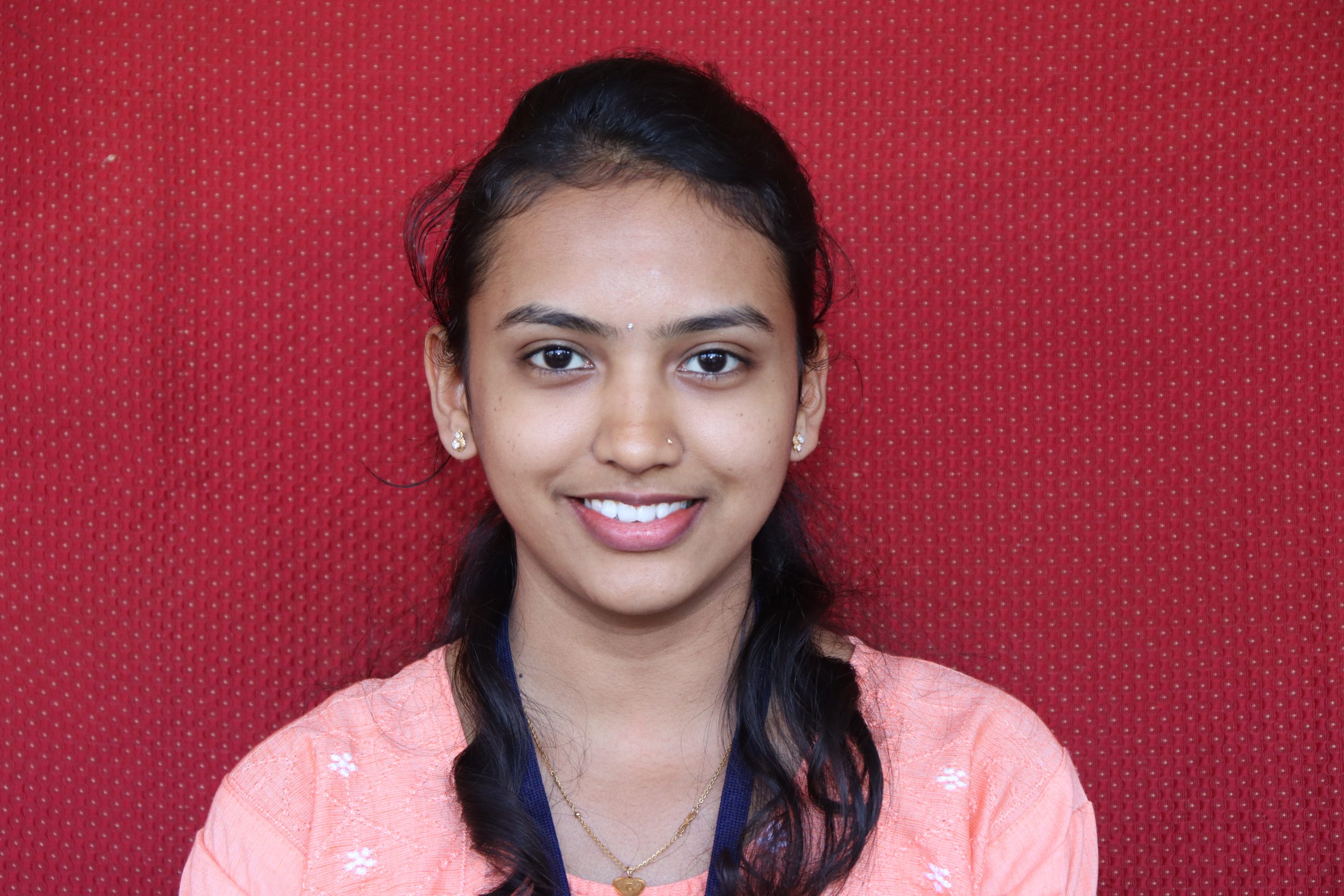HEAD OF THE DEPARTMENT
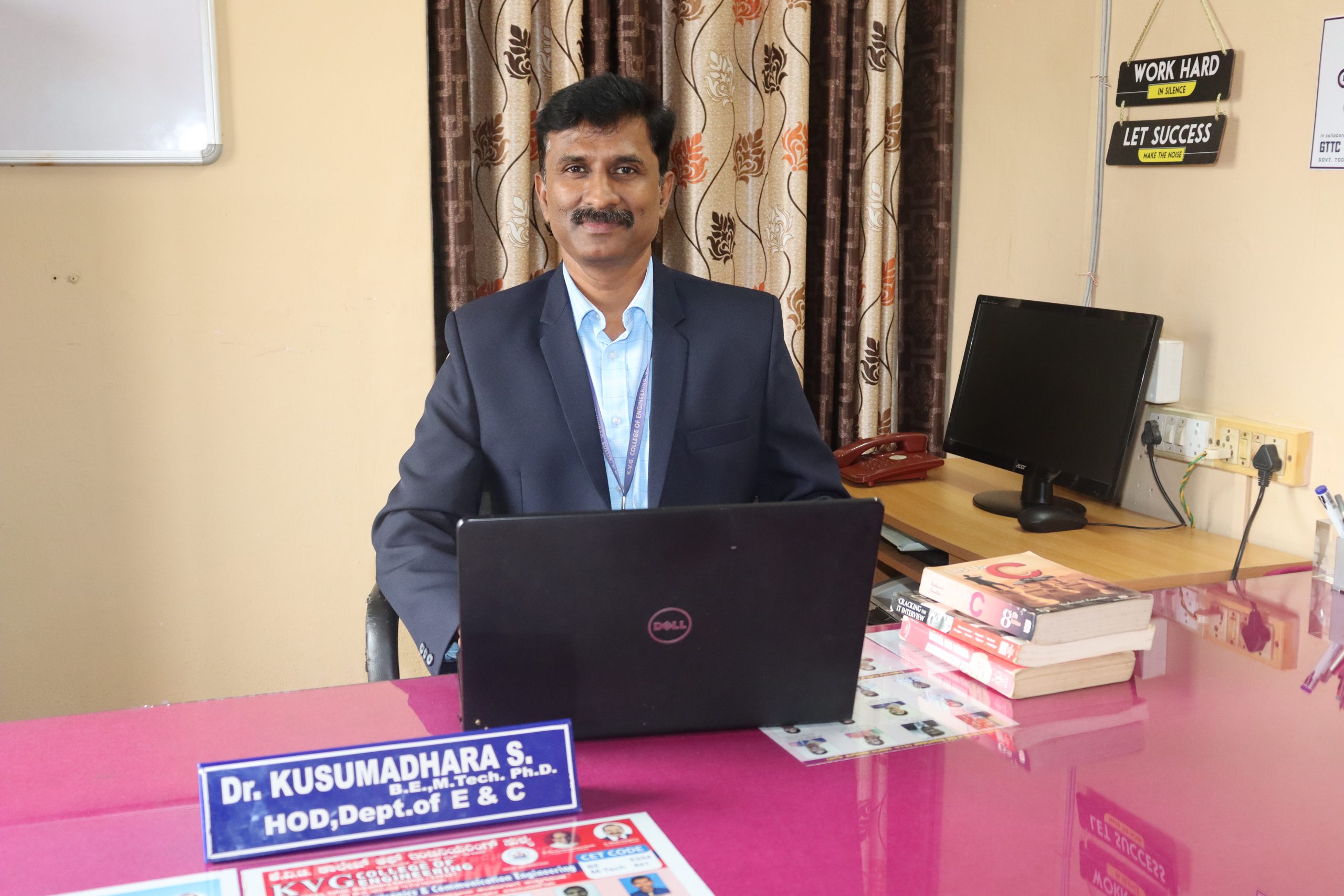
Dr. KUSUMADHARA S
B.E.,M.Tech.,Ph.D, MISTE, MIEEE
echod.kvgce@gmail.com 08257-231141
Ext: 5136
About Electronics and Communication Engineering
Electronics and Communication Engineering (ECE) is a dynamic and ever-evolving force that permeates every facet of modern life, transforming human imagination into tangible reality. With its inherently multidisciplinary nature, ECE empowers engineers to innovate and lead across diverse domains—ranging from communication systems and embedded technologies to automation, healthcare, and beyond. It is this seamless integration of knowledge and application that makes Electronics and Communication Engineering a cornerstone of technological advancement.
To create Innovative, Ethical and Sociable Electronics and Communication Engineers
M1: Implement Academic Process through University Syllabus and Identified Curriculum Gaps
M2: Provide platforms for Teambuilding, Leadership Skills in students community through Motivation and Communication
M3: Build Ethical and Leadership skills through Interactions with the outside world
PEO 1: Engage in designing, manufacturing, testing, operating and/or maintaining systems in the field of electronics and communication engineering and allied engineering industries
PEO 2: Solve problems of social relevance by applying the knowledge of electronics and communication engineering, and/or pursuing higher education and research
PEO 3: Work effectively as individuals and as team members, engage in lifelong learning and adapt to changing professional and societal needs.
PEO 4: To develop professional entrepreneurial skills and social awareness among students to mold them into a good citizen of our country
The Department of The Department of Electronics and Communication Engineering (E&CE) was established in 1986 with a vision to create innovative, ethical, and sociable Electronics and Communication Engineers. The department has well-qualified, experienced, and committed teaching staff whose main focus is on student-centeredness.
The E&CE department has been offering an undergraduate program in Electronics and Communication Engineering since 1986, when the institution was founded. The current intake is 60 students. The department also started a postgraduate program in 2004, with a specialization in Digital Electronics and Communication, and currently admits 18 students. In 2013, the department established a University-Recognized Research Center, and there are currently 7 scholars pursuing Ph.Ds and 3 Ph.Ds have been awarded. Since its inception, the department has achieved three University ranks in undergraduate program and six University ranks in postgraduate program.
The department has a student association named as Electronics and Communication Engineering Association (ENCEA) that organizes technical seminars, workshops, and invited lectures for students. The resource persons are from industry, academia, and R&D centers. This helps students stay up-to-date on emerging technologies in E&CE. The department also publishes ‘Abhivyakthi’ the department yearly newsletter.
The department has adequate infrastructure and well-equipped laboratories. It is also equipped with LCD projectors for lecture delivery, seminars, and demonstrations, as well as an ICT-enabled classroom. The department has signed three MoUs with the companies Takshila Institute of VLSI Technologies, Govt. Tool Room and Training Centre, and Thejas Embedded Solution Pvt. Ltd.
In addition to the Central Library; Departmental Library has more than 1400 volumes with 378 titles, which include academic and competitive related books.
The department is committed to implementing academic process through university syllabus and identified curriculum gaps. It also provides platforms for teambuilding, leadership skills in students’ community through motivation and communication. The department also builds ethical and leadership skills through interactions with the outside world.
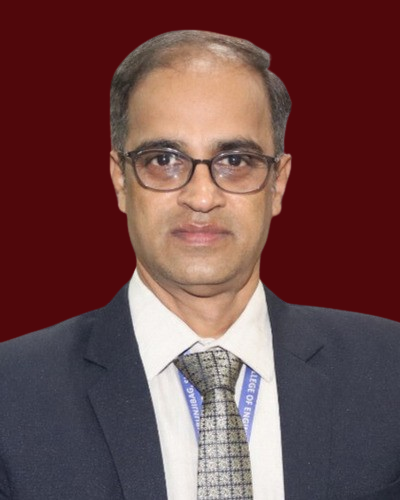
Dr. SURESHA V
Principal B.E., M.Tech., Ph.D., MISTE, MIETE
Experience: 30 Years
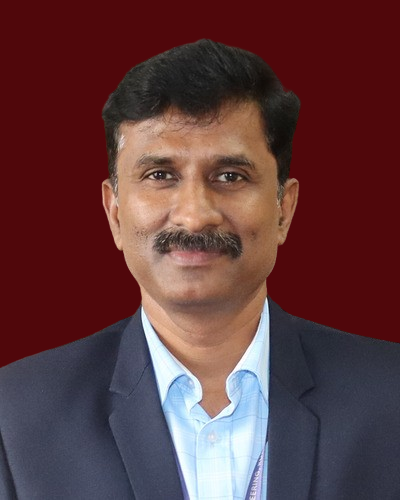
Dr. KUSUMADHARA S
Professor & HOD B.E., M.Tech., Ph.D., MISTE,
Experience: 25 Years
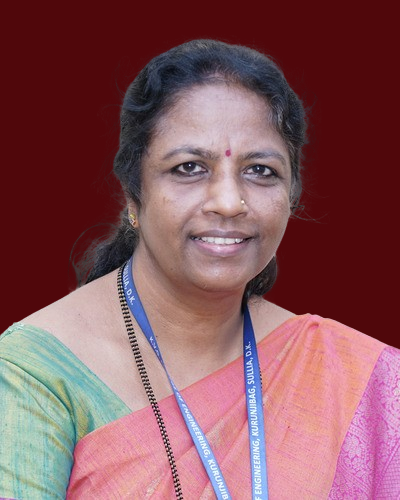
Dr. Savitha M
Professor B.E, M.Tech., Ph.d, MISTE
Experience: 27 Years
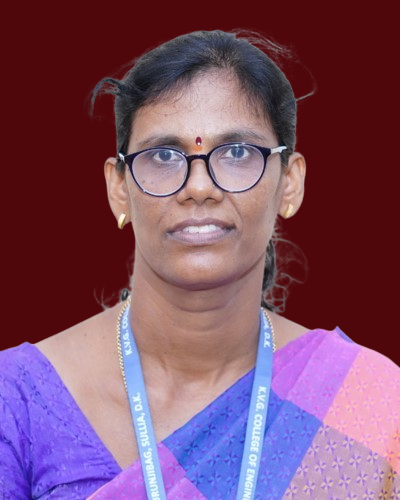
Dr. Bhagya H K
Professor M.Tech., Ph.d, MISTE
Experience: 26 Years

Prof. Bhagyavathi V K
Associate Professor B.E, M.Tech.
Experience: 27 Years
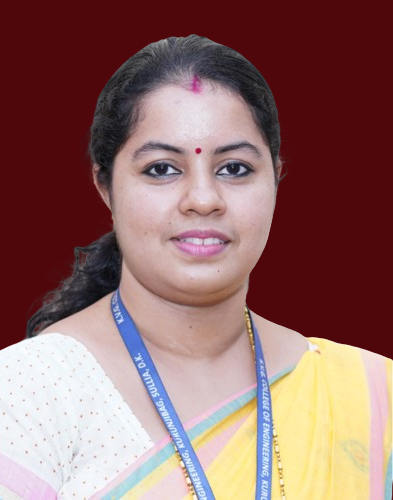
Prof. Aruna P G
Assistant Professor B.Tech., M.Tech.
Experience: 13 Years
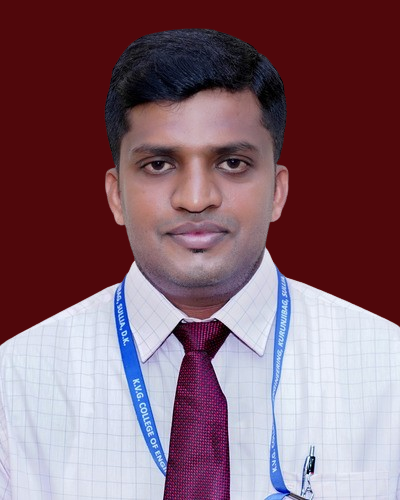
Prof. Lokesh P C
Assistant Professor B.E, M.Tech.
Experience: 11 Years
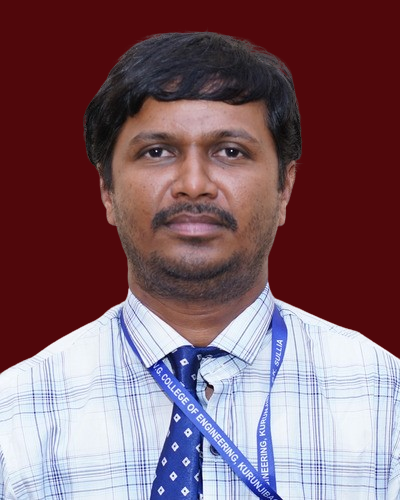
Prof. Sathyajith M
Assistant Professor B.E, M.Tech.
Experience: 11 Years
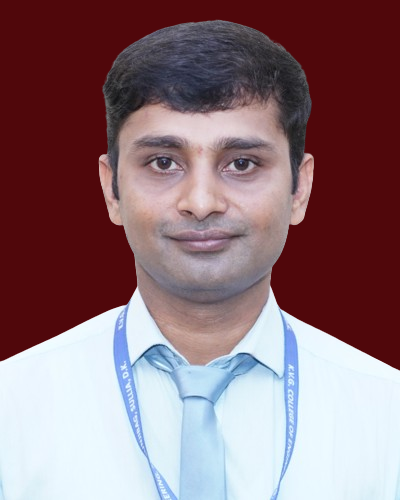
Prof. Adarsha D
Assistant Professor B.E, M.Tech.
Experience: 10 Years
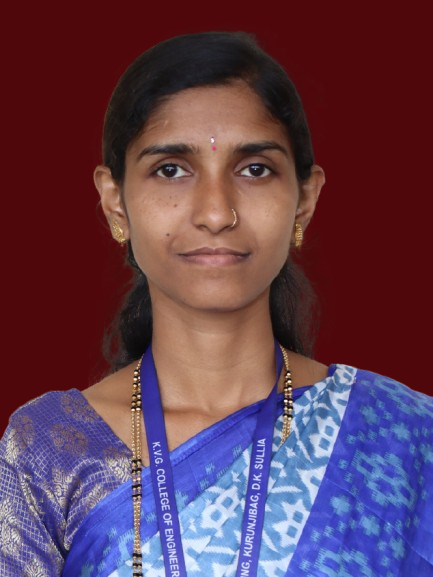
Prof. Deepthi P S
Assistant Professor B.E, M.Tech.
Experience: 02 Years
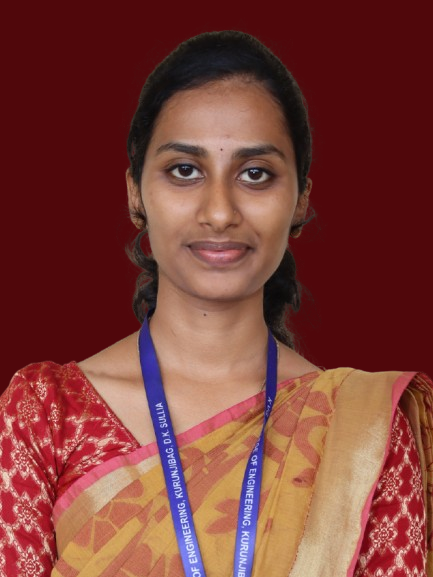
Prof. Vineetha D S
Assistant Professor B.E, M.Tech.
Experience: 02 Years

Dr. SURESHA V
Principal B.E., M.Tech., Ph.D., MISTE, MIETE
Experience: 30 Years

Dr. KUSUMADHARA S
Professor & HOD B.E., M.Tech., Ph.D., MISTE,
Experience: 25 Years

Dr. Savitha M
Professor B.E, M.Tech., Ph.d, MISTE
Experience: 27 Years

Dr. Bhagya H K
Professor M.Tech., Ph.d, MISTE
Experience: 26 Years

Prof. Bhagyavathi V K
Associate Professor B.E, M.Tech.
Experience: 27 Years

Prof. Aruna P G
Assistant Professor B.Tech., M.Tech.
Experience: 13 Years

Prof. Lokesh P C
Assistant Professor B.E, M.Tech.
Experience: 11 Years

Prof. Sathyajith M
Assistant Professor B.E, M.Tech.
Experience: 11 Years

Prof. Adarsha D
Assistant Professor B.E, M.Tech.
Experience: 10 Years

Prof. Deepthi P S
Assistant Professor B.E, M.Tech.
Experience: 02 Years

Prof. Vineetha D S
Assistant Professor B.E, M.Tech.
Experience: 02 Years
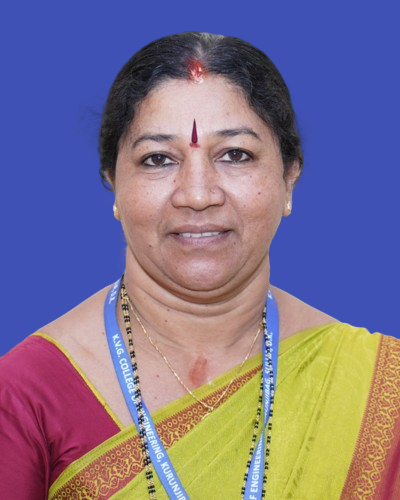
Mrs. Damayanthi K
Foreman Experience: 34 Years
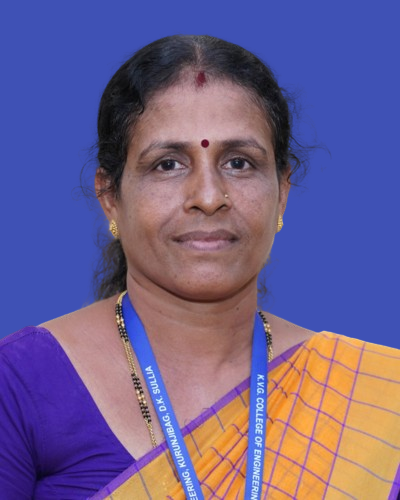
Mrs. Yashoda J
Lab Instructor Experience: 26 Years
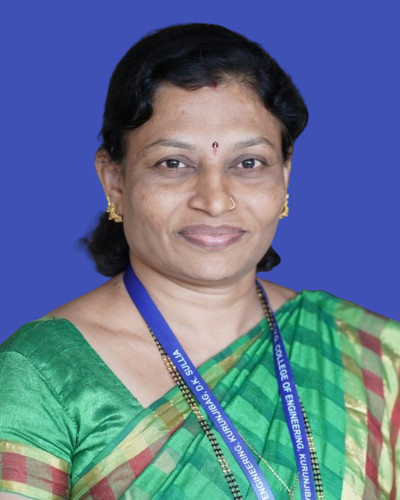
Mrs. Nirmala Kumari UC
Lab Instructor Experience: 25 Years

Mr. Padmanabha
Lab Instructor Experience: 28 Years

Mr. Bhanuprakash
Lab Helper Experience: 24 Years

Mrs. Soumya P S
Lab Instructor Experience: 14 Years

Mrs. Pramila
Lab Helper Experience: 17 Years

Mrs. Damayanthi K
ForemanExperience: 34 Years

Mrs. Yashoda J
Lab InstructorExperience: 26 Years

Mrs. Nirmala Kumari UC
Lab InstructorExperience: 25 Years

Mr. Padmanabha
Lab InstructorExperience: 28 Years

Mr. Bhanuprakash
Lab HelperExperience: 24 Years

Mrs. Soumya P S
Lab InstructorExperience: 14 Years

Mrs. Pramila
Lab HelperExperience: 17 Years
PO1: Engineering Knowledge: To apply the knowledge of mathematics, science, engineering fundamentals, and an engineering specialization to the solution of complex engineering problems
PO2: Problem Analysis: Identify, formulate, review research literature, and analyze complex Engineering problems reaching substantiated conclusions using first principles of mathematics, natural sciences, and engineering sciences.
PO3: Design/Development of Solutions: Design solutions for complex engineering problems and design system components or processes that meet the specified needs with appropriate considerations for the public health and safety, and the cultural, societal, and environmental considerations
PO4: Use research-based knowledge and research methods including design of experiments, analysis and interpretation of data, and synthesis of the information to provide valid conclusions.
PO5: Create, select, and apply appropriate techniques, resources, and modern engineering and IT tools including prediction and modeling to complex engineering activities with an understanding of the limitations.
PO6: Apply reasoning informed by the contextual knowledge to assess societal, health, safety, legal and cultural issues and the consequent responsibilities relevant to the professional engineering practice.
PO7: Understand the impact of the professional engineering solutions in societal and environmental contexts, and demonstrate the knowledge of, and need for sustainable development.
PO8: Apply ethical principles and commit to professional ethics and responsibilities and norms of the engineering practice.
PO9: Function effectively as an individual, and as a member or leader in diverse teams, and in multidisciplinary settings.
PO10: Communicate effectively on complex engineering activities with the engineering community and with society at large, such as, being able to comprehend and write effective reports and design documentation, make effective presentations, give and receive clear instructions.
PO11: Demonstrate knowledge and understanding of the engineering and management principles and apply these to one’s own work, as a member and leader in a team, to manage projects and in multidisciplinary environments.
PO12: Recognize the need for, and have the preparation and ability to engage in independent and life-long learning in the broadest context of technological change.
PSO1 : Specify, design, build and test analog, digital and embedded systems for signal processing
PSO2 : Understand and architect wired and wireless analog and digital communication systems as per specifications, and determine their performance
Well-qualified, self-motivated, experienced, and dedicated faculty members.
Adequate infrastructure and well-equipped laboratories.
Achieved 100% placement for undergraduate (UG) students in software and core companies in AY 2022-23.
Recognized as a university research center in the year 2013
Electronics and Communication Engineering Association (ENCEA) established to foster leadership qualities.
Projects funded by the Karnataka State Council for Science & Technology (KSCST).
University-funded projects for undergraduate (UG) students.
Undertaking socially relevant projects.
Department library with a collection of over 1400 books.
Active industry interaction through MOUs and internship opportunities.
Three university ranks in UG and six University ranks in PG programs
FDP on FPGA-Based Software Defined Test & Measuring
NENAPU-2025: A Memorable Farewell for the 36th Batch of E&C
Creative Corner – A Fun-Filled Event of Words and Crafts
Data Visualization with Python Libraries- A Hands-on Workshop
Industrial Visit to Varahi Underground Power Plant
Laboratories
- Electronic Devices and Instrumentation Lab: Focuses on foundational electronic devices and measurement techniques.
- Digital System Design Lab: Covers digital circuits and systems.
- Microcontroller Lab: Experiments with microcontroller programming and applications.
- Analog Circuit Lab: Studies analog electronics and circuit design.
- HDL Lab: Uses Hardware Description Languages for digital design.
- Digital Signal Processing Lab: DSP techniques and applications.
- Embedded System Lab: Real-time embedded applications.
- Communication Lab: Communication systems and signal processing.
- Computer Network Lab: Networking principles and practices.
- VLSI Lab: Very-Large-Scale Integration design.
- Project Lab: For student projects and research.
Tools and Software:
- Mentor Graphics, Xilinx, Microwind: For VLSI and FPGA design.
- MATLAB: Simulation and computational tools.
- Code Composer Studio: Development environment for embedded applications.
- ARM Cortex/Keil/Flash Magic: ARM development tools.
- Multisim: Circuit simulation software.
Additional Facilities:
- Smart Classrooms: Interactive learning environments.
- Department Library: Specialized resources for ECE students.
- Department Seminar Hall: Venue for seminars and presentations.
- Departmental Association (ENCEA): Organizes co-curricular and extracurricular activities.
- Funded Projects: Research initiatives supported by external funding.
- NSS and YRC Unit: Social service and youth engagement.
- Internet and Wi-Fi Facility: High-speed internet access for students and faculty.


